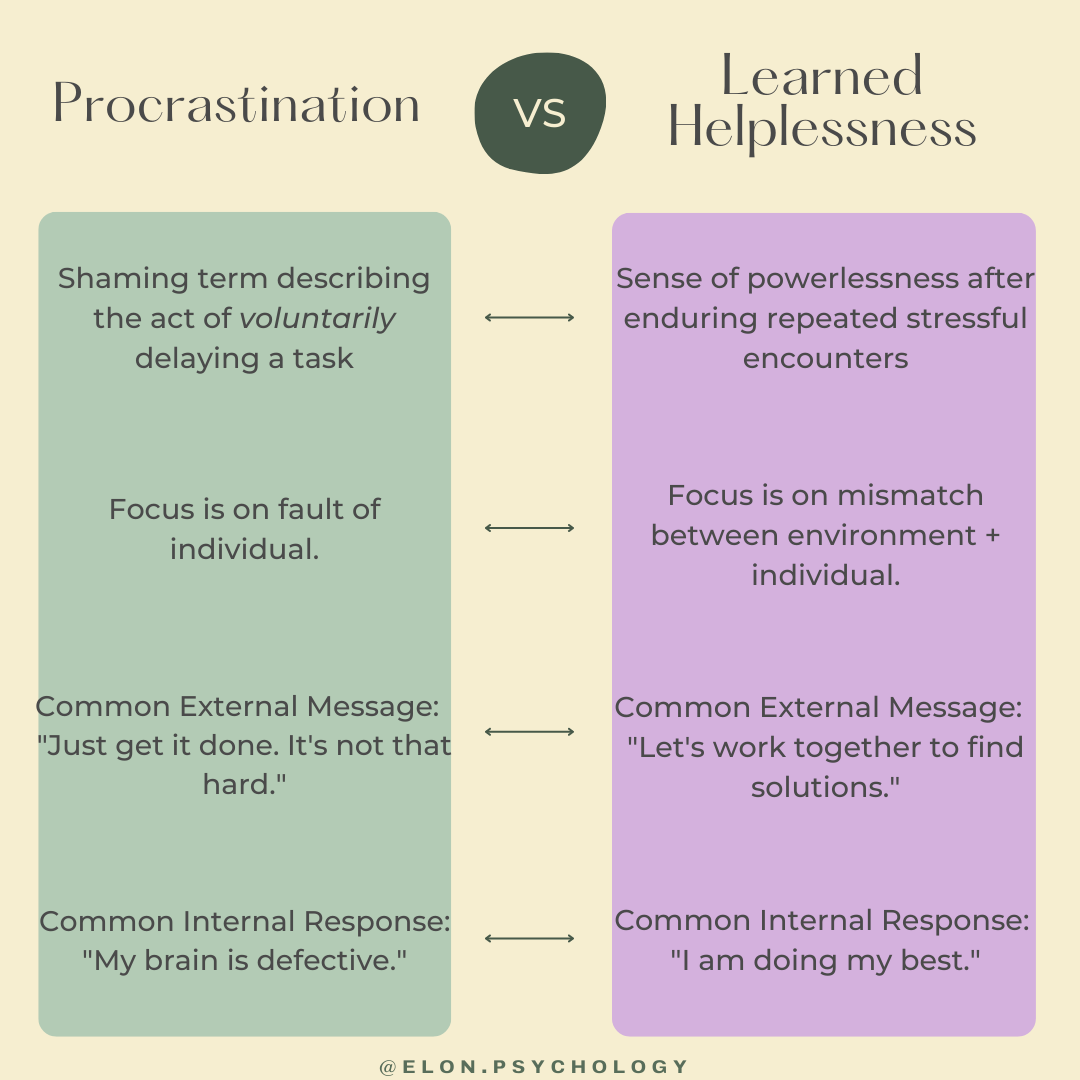
Procrastination or Learned Helplessness?
Learned helplessness is often experienced by ADHDers and Autistic folks. Successfully completing a neurotypically-designed task to neurotypical standards with a neurodivergent brain is tough. The result is this: the ADHDer or Autistic person is told that they aren’t doing it right. Hearing these messages on repeat causes them to feel powerless and incompetent. The result? Learned helplessness.

How to Make Affirming Diagnoses
Language is important. As evaluators, we should think about how we can frame the DSM criteria in a way so our clients feel understood and not shamed by us. We can take our conceptualization a step beyond the DSM and consider the contextual factors at play. Consider the cultural, societal, and relational contexts that the individual functions in and how these frameworks contribute to their challenges.

Imposter Syndrome
Imposter syndrome is something that I am all too familiar with. It’s something that many people are very familiar with, even if they don’t realize it. It’s that thought that you don’t know enough or haven’t learned enough or aren’t good enough. Noticing a theme? You are not enough.

The Stories We Tell Ourselves
Our minds are extremely skilled storytellers. Many of these stories have a history. They were created based on an experience we had, a message that was told to us, a difficult interaction, and so on. We’ve been telling ourselves these stories for so long that they often feel like fact. We get lost as the protagonist in the story and view the world from within the script. The problem with this is that we might get stuck in the storyline, which can limit us from experiencing different perspectives and new opportunities.

From Pathology to Neurodiversity
The neurodiversity paradigm focuses on differences and assumes that diversity among brains is natural, necessary, and valuable. There is no normal. Sure, there tends to be dominant groups across all areas of human diversity, but we can’t confuse dominant with best.

